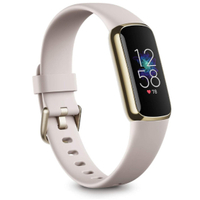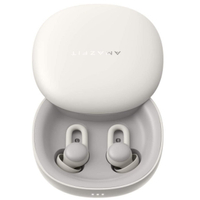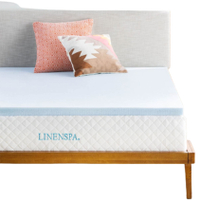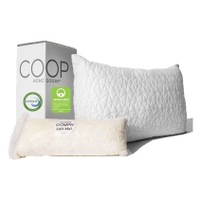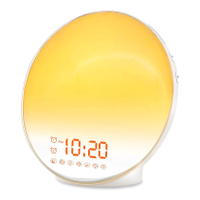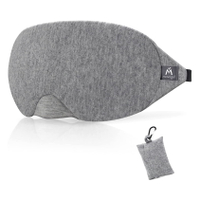Back to school: pro tips and tech to help you sleep better at college
How to get better sleep at college—plus 6 products that help
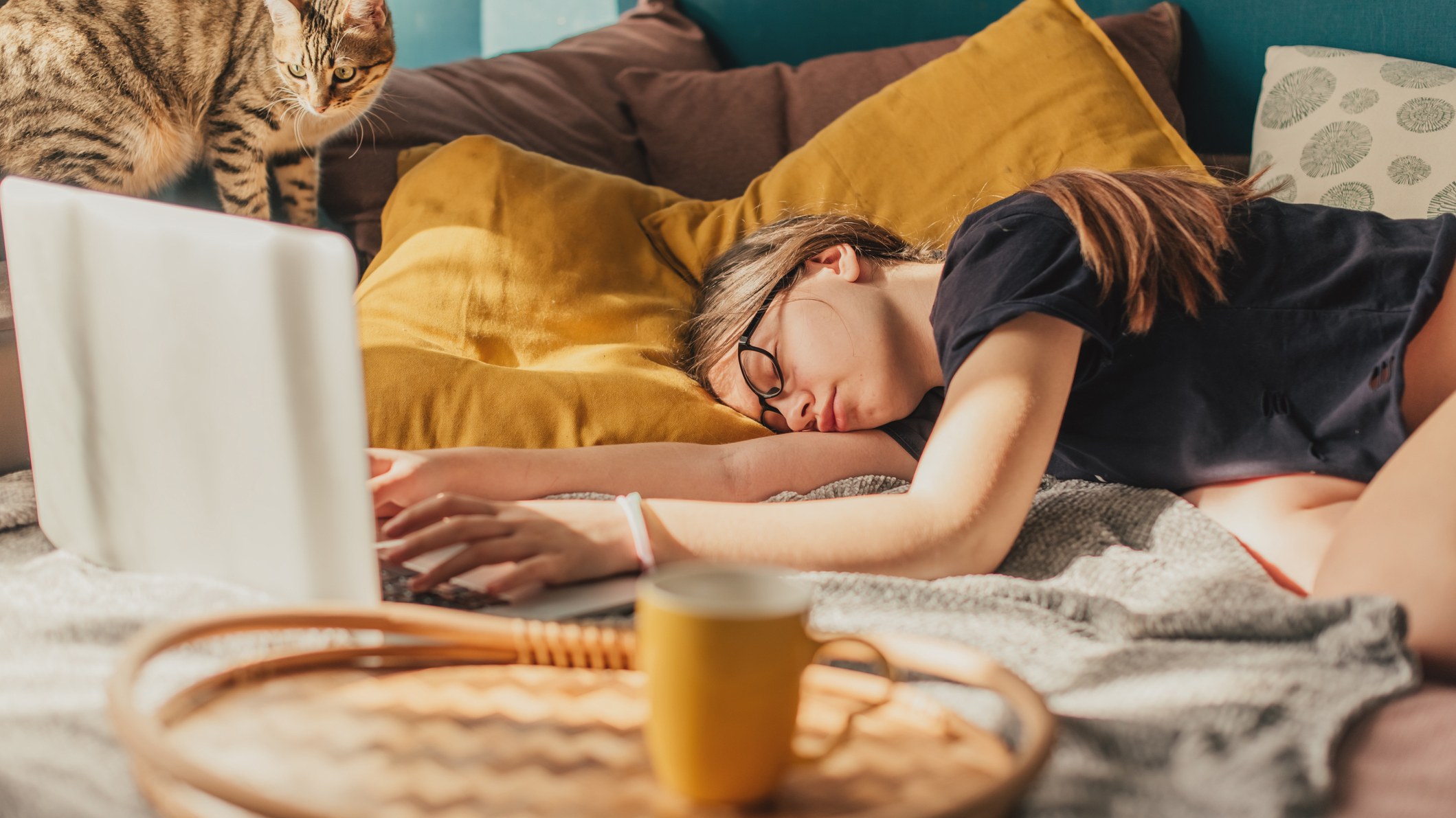
Heading back to school is an exciting time. So exciting, in fact, that you might forget to prioritize sleeping. But if you want to ace your college studies and have the energy for a jam-packed social life, good quality sleep is your secret weapon.
To help you catch some seriously good zzzs, we’ve pulled together this handy guide on how to sleep better at college, plus six key products to help you fall asleep faster and for longer.
After all, at home you may have the best mattress for your body and sleep position, but you can’t exactly roll it up and take it with you. So here’s what to do and pack instead…
How much sleep does a college student need?
According to CDC guidelines, most healthy college students need between seven and nine hours sleep a night. Getting this amount of good quality sleep is essential to help you process what you’re learning each day at college, and to help your brain repair your body overnight and ward off illness.
The result? You’ll feel more rested and energized the next day, so you’ll be more focused in class and engaged when hanging out with your friends.
If you regularly feel any of the following, you might not be getting good enough sleep at night:
- You wake up frequently through the night
- You wake up feeling tired most mornings
- You need caffeine to kick-start your energy levels
- You’re falling asleep in class
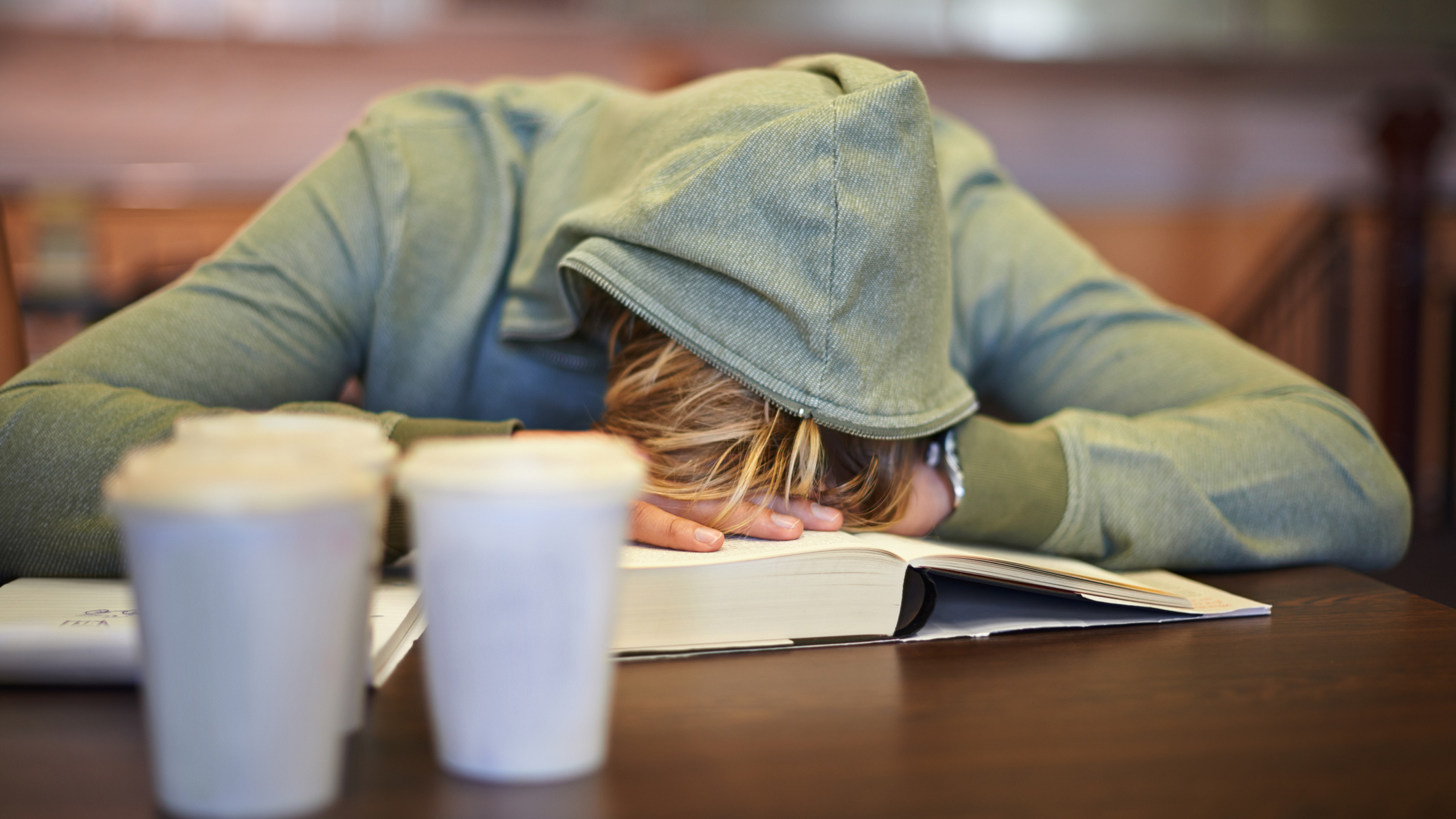
Of course there are other reasons for feeling tired, so if you’re feeling exhausted regularly and you think you’re sleeping well otherwise, speak to your doctor or health professional for advice.
Get daily insight, inspiration and deals in your inbox
Sign up for breaking news, reviews, opinion, top tech deals, and more.
Why sleep is important for college students
According to research, daytime sleepiness, sleep deprivation and chaotic sleep schedules are rife among college students. One 2014 study found that 50% of students reported daytime sleepiness, while 70% said they didn’t get enough good sleep each night.
How does that link to your potential GPA (Grade Point Average)? The study found that:
- Students who sleep for around nine hours a night had a higher GPA of 3.24
- College students who slept for six hours or less each night had a lower GPA of 2.74
The benefits of sleep go beyond grades too, as research tells us that good quality sleep benefits our mental health, confidence, decision making, and ability to make and maintain friendships.
In short, if you want to do better with your grades and feel more confident in your new social life, good sleep is key.
How to sleep better at college: tips and techniques
We know there are more exciting things to do at college, but learning how to sleep better will set you up for a brilliant year and beyond. The easiest way to prioritize good sleep is to create an easy yet relaxing bedtime routine, and to wake up at the same time every day (consistency is key to better sleep at night).
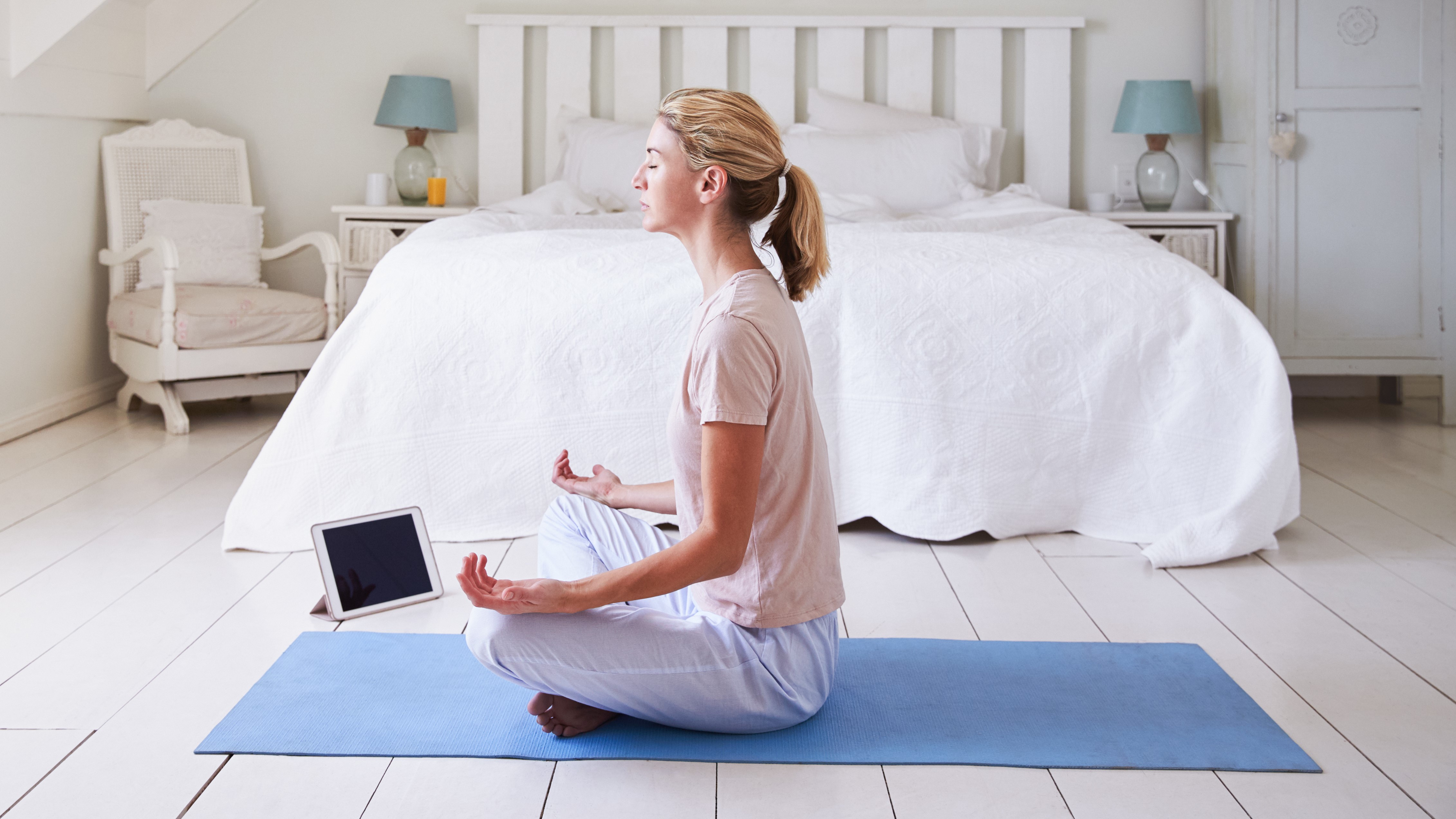
Those are the basics, but we’d also recommend the following:
- Don’t consume caffeine after midday - depending on your tolerance, it can stay in your system for up to eight hours and wreck your sleep.
- Don’t eat a heavy meal within three hours of bed - your body will be focused on digestion, not sleeping.
- Get your cardio done in the morning - gentle exercises only close to bedtime.
- Learn how to relax your brain and body before sleep - a good sleep app with meditation sessions will help you here.
- Dim the lights in your dorm room around one hour before sleep to boost production of melatonin (the sleep hormone).
- Keep your dorm room cool, dark and quiet for sleeping.
- Ditch the tech before bed - blue light pollution is the enemy of melatonin. At the least, switch to night mode and consider wearing blue light-blocking glasses (these have orange lenses).
- Adopt a good sleep technique to help you fall asleep faster - we’re big fans of The Military Sleep Method.
- Don’t put pressure on yourself - the more you stress about getting good sleep, the harder it will be to obtain.
6 products to help you sleep better at night
1. Sleep tracker
How do you feel when you wake up each morning? If you constantly feel tired and cranky, chances are you need more sleep. If you always wake up feeling raring to go and don’t need to chug a load of caffeine first, then you’re getting enough sleep.
A sleep tracker can help you get a rough idea of how much sleep you’re getting each night, what might be disturbing it, and how you can sleep better. Don’t take the stats as gospel, but they are useful for getting more insight into your shut-eye and how to improve it if needed.
Fitbit Luxe: from $129.95 $99.95 at Amazon
The Luxe is an excellent fitness tracker with built-in sleep tracking, so it’s geared up to let you know how much light, deep and REM sleep you’re getting on average. As we explain in our Fitbit Luxe review, it then generates a Sleep Score based on what it could track of your sleep quality and duration.
2. Sleep earplugs or an under-the-pillow speaker
Dorms can be noisy, and if you’re a light sleeper anyway, your sleep will be ambushed by noisy neighbours. Wearing earplugs is a quick-fire way to block out external noises that could be waking you from sleep. When choosing the best sleep earplugs for you, think about the types of noises that disturb your sleep the most. If it’s other students or the sound of traffic outside, look for noise-cancelling earplugs to dim the racket.
On the other hand, if you find it hard to fall asleep when it’s too quiet, consider using either sleep earbuds with built-in white noise and soothing sleep sounds, or an under-pillow speaker to play the same if you don’t like wearing anything in your ears at night.
Amazfit Zenbuds: $129.99 at Amazon
These sleep buds have everything you need to drown out external noise or to mask a too-quiet room. In our Amazfit Zenbuds review we noted how comfy they are, and how they double as a sleep tracker if you don’t have the budget for both. There are plenty of soothing sounds here, plus a built-in alarm.
3. Comfy mattress topper (and protector)
You can’t ship your entire bed off to campus with you, but you can put a thick and clean barrier between your body and that dorm room mattress you’ve inherited. We’d recommend investing in the best mattress topper for your budget, and choosing memory foam if you want to add softness or body-hugging comfort to a bed that’s too firm.
Also, while maintaining a clean bed is vital for hygiene, it can help you sleep better if you have allergies. That’s because regular cleaning keeps bacteria and dust mites (a major allergen) at bay, and reduces dust levels. A good mattress protector safeguards against dirt, spills and stains, and can be pulled over your topper. Opt for a mattress encasement for full coverage.
Linenspa 2” Gel Foam Mattress Topper: from $39 at Amazon
This best-selling topper comes in 2” and 4” versions and uses gel-infused foam to keep you cooler during sleep. This is the same excellent material that makes memory foam mattresses so comfy. Lay the topper on your mattress then cover both with the same protector to keep bugs at bay.
4. Supportive pillow
Choosing the best pillow for your sleep position and body type is a smart move for your general wellbeing at college. Find the right one and your head and neck will be properly supported during the night, which in turn will help you sleep better for longer. You also won’t wake up with a stiff neck and have to deal with aches when studying and socializing.
Side sleepers often need taller and firmer pillows to plug the gap that forms between their head and shoulders, while back and stomach sleepers fare better with shallower pillows that won’t tilt their neck forward and out of alignment.
Coop Home Goods Adjustable Pillow: $71 at Amazon
This seems a little pricey for a bed pillow, but it’s fully adjustable. That means you can stuff it with as much or as little memory foam as you need to create the perfect custom pillow for your body shape and the position you snooze in. It’s also made with CertiPUR-US materials that are toxin free for healthier sleep.
5. Wake-up light
You might not need one of these straight away so pop it on your ‘file away until later’ list. But when the nights draw in and early morning sunshine is a thing of summers’ past, a wake-up light will help you rise and shine more easily each morning for college.
While not quite up to the standard of proper light therapy lamps, these bedside dwelling body clocks can also help to reduce some of the symptoms of Seasonal Affective Disorder (S.A.D.). They do this by bathing your room slowly each morning in a cheery glow that mimics a sunrise. At night, use the sunset mode to ease you into deep sleep.
Jall Wake Up Light: $28.99 at Amazon
We’ve tested plenty of the best wake up lights for a range of budgets, and while Lumie dominates the market, we also have a soft spot for this budget body clock. In addition to that all-important sunrise simulation, it plays natural sounds to wake you gently, and you can use it as a bedside lamp.
6. Eye mask
Noise can disturb sleep, but so can light pollution. This could be coming from any random sources of light in your bedroom (think plugs and switches), or from street lamp lighting pouring in through thin curtains.
If you feel comfortable wearing an eye mask, we’d recommend trying one to see if it helps. Start with a cheaper one to begin with, just in case you don’t like the feel of wearing something on your head during sleep. Your other option is blackout blinds and drapes, but they’re pricier.
Mavogel Light-Blocking Sleep Mask: $9.98 at Amazon
This soft cotton mask for sleeping blocks out a good deal of light, so you should fall asleep faster regardless of any light pollution in your bedroom. It comes with a travel bag for keeping it clean after use, and the elasticated strap is designed to fit all head sizes so it shouldn’t pinch or dig in.
Read more:

Claire is a Sleep Editor and Certified Sleep Science Coach who covers all things related to slumber, and is the go-to person for getting great product recommendations for better sleep. As an expert mattress reviewer, Claire has tested memory foam and hybrid mattresses from a range of top-rated brands, and has extensive experience of testing bedding too. Claire regularly speaks to certified sleep specialists, such as chartered psychologists and doctors of sleep medicine, to stay on top of the research and techniques that can help you enjoy better quality sleep, and she speaks with industry specialists about the latest mattress trends and new releases. Before delving into the world of sleep, Claire was Health & Wellness Editor at Top Ten Reviews, and before that a Senior Content Editor at T3. Having suffered with insomnia for years, Claire knows how much of a difference a good night's sleep can make and is passionate about helping others to sleep better too.
